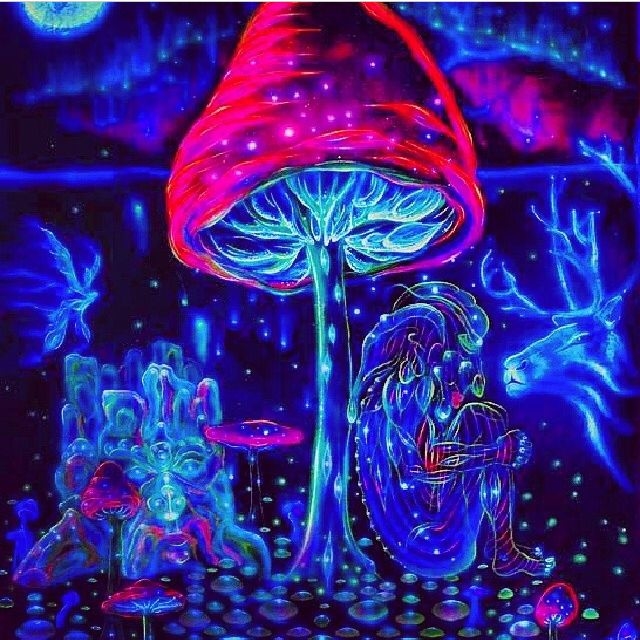Introduction:
Magic mushrooms, scientifically acknowledged as psilocybin mushrooms, have a loaded and various cultural record that spans centuries. These enigmatic fungi have performed a significant function in the rituals, spirituality, and inventive expression of many civilizations around the earth. In this report, we will delve into the cultural and historic perspectives encompassing magic mushrooms, analyzing their use, affect, and significance in distinct societies.
Historical Use and Shamanic Techniques:
The use of magic mushrooms can be traced back again thousands of decades, with proof suggesting their presence in various historical cultures. A person of the most well-documented occasions is the use of psilocybin mushrooms by indigenous tribes in Mesoamerica. The Aztecs, for instance, referred to these mushrooms as “teonanácatl,” translating to “flesh of the gods.” Shamans in these cultures eaten magic mushrooms through religious ceremonies to induce altered states of consciousness, believing that it facilitated interaction with the divine.
In the same way, indigenous tribes in Africa, this kind of as the Bwiti in Gabon, have a long historical past of incorporating hallucinogenic mushrooms into their non secular techniques. The mushrooms are thought to hook up the person with ancestral spirits, giving direction and perception. These procedures highlight the integral position magic mushrooms played in ancient shamanic traditions, serving as a instrument for transcendent ordeals and religious exploration.
Magic Mushrooms in Western Society:
In the twentieth century, the Western entire world witnessed a resurgence of fascination in magic mushrooms, largely because of to the influence of counterculture movements. Throughout the fifties and sixties, scientists like R. Gordon Wasson and Timothy Leary explored the psychedelic qualities of psilocybin mushrooms, contributing to their enhanced level of popularity among the basic general public. Leary, in individual, advocated for the therapeutic likely of these substances, believing they could direct to profound personalized and religious expansion.
The 1960s also saw the common leisure use of magic mushrooms, as they turned synonymous with the psychedelic revolution. Nevertheless, this cultural movement ultimately led to a backlash, with several governments banning the use of psychedelic substances. Despite authorized restrictions, interest in magic mushrooms persisted, and contemporary study has revisited their possible therapeutic added benefits, significantly in the treatment method of psychological wellness problems.
Modern-day Research and Therapeutic Probable:
In recent decades, there has been a resurgence of scientific interest in the therapeutic possible of magic mushrooms. Clinical reports have explored the efficacy of psilocybin in dealing with problems these as melancholy, anxiousness, and post-traumatic worry ailment (PTSD). The final results have been promising, indicating that very carefully guided and supervised psychedelic activities could have profound and long lasting positive results on psychological health and fitness.
The resurgence of fascination in the therapeutic use of magic mushrooms has led to a reconsideration of their cultural and historical significance. Scientists are now drawing connections between ancient shamanic tactics and contemporary psychedelic-assisted treatment, suggesting a possible continuity in the human use of these substances for religious and psychological exploration.
Authorized and Ethical Issues:
Regardless of the rising human body of proof supporting the therapeutic added benefits of magic mushrooms, legal and moral things to consider stay significant hurdles. Numerous international locations classify psilocybin mushrooms as controlled substances, limiting their use and investigation. Having said that, a shift in attitudes is taking place, with some jurisdictions decriminalizing or legalizing the recreational and therapeutic use of these mushrooms.
read this article of using magic mushrooms in a therapeutic context also elevate queries about security, consent, and cultural sensitivity. Scientists and policymakers should navigate these complexities to make sure dependable and equitable access to the prospective positive aspects of these substances.
Summary:
Magic mushrooms have woven a intriguing tapestry all over human history, connecting ancient shamanic practices with up to date scientific exploration. From their part in indigenous rituals to the counterculture actions of the 20th century and the resurgence of therapeutic exploration these days, magic mushrooms continue on to captivate and challenge our understanding of consciousness and spirituality.
As we navigate the cultural and historical perspectives on magic mushrooms, it is crucial to approach their use with respect for varied traditions, a motivation to moral concerns, and an openness to the possible therapeutic gains they might offer. The ongoing dialogue between historical wisdom and modern science guarantees a deeper comprehending of these enigmatic fungi and their position in the tapestry of human experience.
Exploring Cultural and Historic Views on Magic Mushrooms


